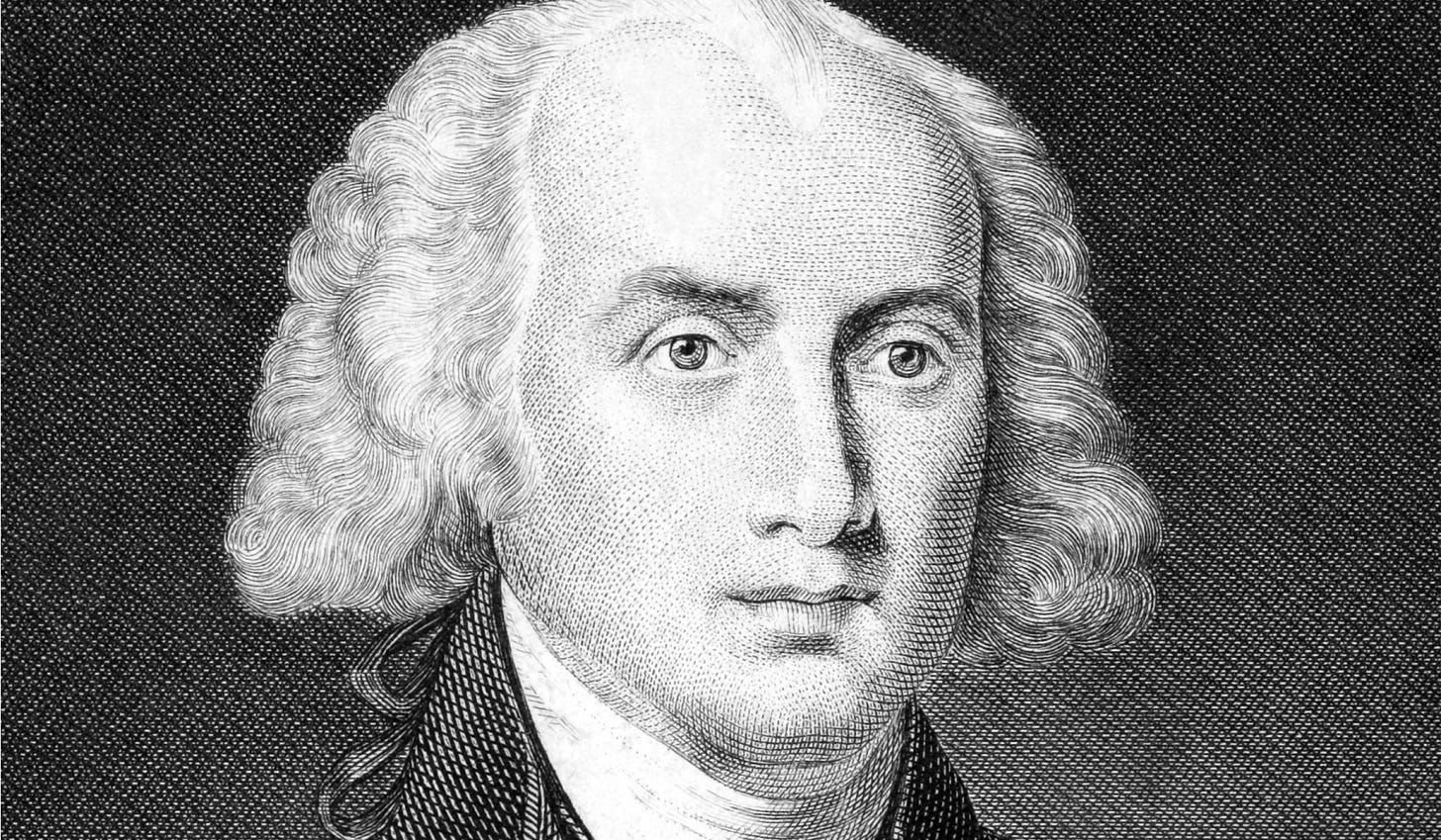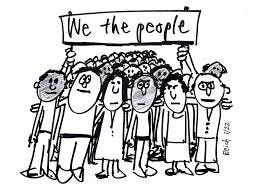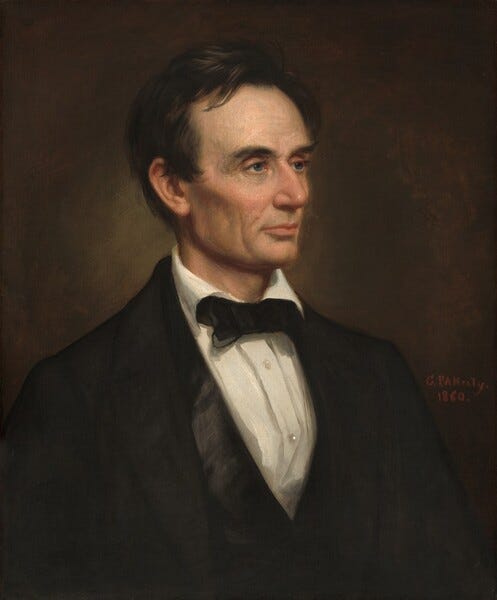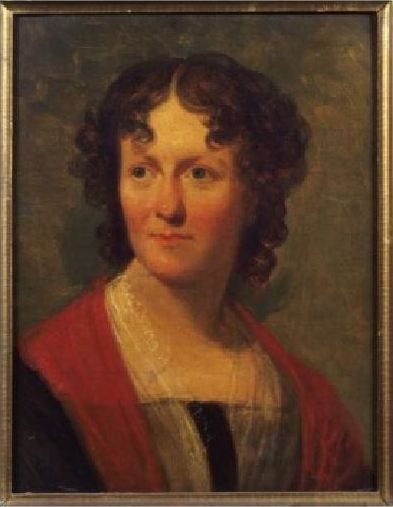Friends,
The erstwhile billionaire Sam Bankman-Fried — whose cryptocurrency exchange, FTX, and its intertwined sister organization, the trading firm Alameda Research, abruptly collapsed last year — was sent to jail last Friday after a federal judge in New York revoked his bail. The judge found that Bankman-Fried had tried to influence witnesses who will testify against him at his trial, which begins in October. (Presumably, if the “rule of law” were applied equally, Trump would now be in jail as well.)
Before his arrest last December on charges of wire fraud, wire fraud conspiracy, securities fraud, securities fraud conspiracy, and money laundering, Bankman-Fried had been one of the most prominent advocates of “effective altruism,” which holds that it is morally desirable for individuals to make enormous amounts of money — regardless of how they do it — as long as they then give it away for the betterment of the world.
Bankman-Fried said he was driven to become a multibillionaire by his concern for the lives of others and all the good that his fortune could do, and he promised to eventually donate almost all of his net worth — once estimated at $26 billion.
Yet there seems to have been a remarkable disconnect between the means Bankman-Fried chose to become fabulously wealthy and his stated goal of redeeming the world.
Effective altruism is an end-run around the common good — a perversion of the civic virtue that the common good requires.
Bankman-Fried’s rise and fall — and the disconnect between his ends and the means — raises two questions at the heart of our quest to understand what has happened to the common good: What is the role and meaning of civic virtue? And is it possible to be virtuous if our goals are virtuous but the means we choose to achieve them harm others?
[James Madison]
AMERICA’S FOUNDERS DID NOT CREATE AN INCLUSIVE SOCIETY. Their common good did not include Black people who were enslaved or Native Americans. Women and the non-propertied poor could not vote.
The Founders nonetheless embraced a set of principles that would eventually lead to a far more inclusive society. Those principles rested on the notion of civic virtue.
When they spoke of “virtue,” it was not as we understand the term, involving personal kindness and generosity. For them, virtue meant a commitment to the well-being of society as a whole rather than to self-interest. They feared that without a virtuous citizenry, the young republic would succumb to authoritarian rule.
James Madison asked rhetorically, “Is there no virtue among us? If there be not, no form of government can render us secure. To suppose that any form of government will secure liberty or happiness without any virtue in the people is a chimerical idea.”
When Frenchman Alexis de Tocqueville visited the United States in the 1830s, he attributed the strength of America’s young democracy to the “habits of the heart,” as he called them — the “sum of moral and intellectual dispositions” that emerged from Americans’ experience in self-government.
Through governing themselves, Tocqueville found, Americans learned to put public responsibility over selfish interest.
“Citizens who are bound to take part in public affairs must turn from the private interests and occasionally take a look at something other than themselves,” he wrote. The New Englander, for example, “invests his ambition and his future” in his town, and “accumulates clear, practical ideas about the nature of his duties and the extent of his rights.
AMERICAN POPULAR CULTURE once echoed these sentiments without sounding corny or inauthentic. They could be found in Robert Sherwood’s plays, the novels of John Steinbeck and William Saroyan, Aaron Copland’s music and Frank Capra’s films.
The last scene in “It’s a Wonderful Life” encapsulated the lesson: Jimmy Stewart learns that he can count on his neighbors, just as they had always counted on him. They are all bound together in the common good.
The common good was not based on charity or generosity. It was a social contract in which all members came to the aid of others when they needed it. More basically, it meant giving everyone an equal chance to succeed.
In 1892, social reformer Jane Addams explained that Hull House, her settlement house in a poor precinct of Chicago, was not a charity. Hull House’s purpose — and, for Addams, a central obligation of American citizenship — was to help America’s less fortunate make the most of themselves.
“To call this effort philanthropy is to use the word unfairly and to underestimate the duties of good citizenship,” she said. Giving others an equal opportunity was an essential aspect of the common good.
A COMMITMENT TO THE COMMON GOOD was thought to extend from our forbears to our descendants — a moral bond uniting us through generations.
In his first major public speech, in 1838, Abraham Lincoln put it this way:
“We find ourselves under the government of a system of political institutions, conducting more essentially to the ends of civil and religious liberty, than any of which the history of former times tell us. We, when mounting the stage of existence, found ourselves the legal inheritors of these fundamental blessings. We toiled not in the acquirement or establishment of them—they are a legacy bequeathed to us, by a once hardy, brave, and patriotic, but now lamented and departed race of ancestors.”
Twenty-three years later, in his first inaugural address, Lincoln referred to it as America’s “mystic chords of memory,” a moral covenant linking past and the future.
It was this covenant — not any particular race, religion, or ethnicity — that gave America its ideals and identity. It centered on the common good.
“The American trick,” political philosopher Benjamin Barber noted, “was to use the fierce attachments of patriotic sentiment to bond a people to high ideals.”
Those ideals lay behind the Declaration of Independence, the Constitution and the Bill of Rights, Lincoln’s Gettysburg Address, and Martin Luther King Jr.’s “free at last” sermon at the 1963 March on Washington. The enunciations of these ideals reminded us of our commitment and our duty to bequeath the same commitment to others — to teach them to our children and to explain them to new immigrants.
The commitment was not centered on reciting the Pledge of Allegiance or singing the National Anthem or celebrating the American flag. Nor was it nationalistic or xenophobic.
It was a commitment to one another. It embodied a set of moral responsibilities — to uphold and strengthen our democracy, to provide each other with equal political rights, to generate equal opportunity, to give our young people a civic education, to discern and spread the truth, and to sacrifice for the common good.
These were not constitutional rights and freedoms. They were the essential duties of citizenship.
And because they were based on the “habits of the heart,” they also formed the basis for being responsible inhabitants of the world.
These duties led Lincoln to proclaim that America might yet be the “last best hope” for humankind. They prompted Emma Lazarus, some two decades later, to welcome to America the world’s “tired, your poor / Your huddled masses yearning to breathe free.”
[Frances Wright]
They inspired Scottish immigrant Frances Wright — feminist, abolitionist, and advocate of free public education — to write:
“What is it to be an American? Is it to have drawn the first breath in Maine, in Pennsylvania, in Florida, or in Missouri? Pshaw! Hence with such paltry, pettifogging calculations of nativities! They are Americans who have complied with the constitutional regulations of the United States . . . wed the principles of America’s declaration to their hearts and render the duties of American citizens practically to their lives.”
***
Samuel Bankman-Fried’s “effective altruism” — and the separation of means and ends it allows — is utterly inconsistent with these duties. By encouraging self-aggrandizing individuals to accumulate great wealth in ways that may harm others, as long as they give that wealth away, it dispenses with any common moral duties. It thereby defies civic virtue.
AMERICANS PASSIONATELY DISAGREE about all manner of things. But we must share some basic commitments to each other because they are — or have been — what makes us a people. The most basic of such commitments are to democracy, the Constitution, equal political rights, equal opportunity, and the rule of law. These commitments bind us together. Although we have fallen short of achieving them, they have been our shared ideals. They have informed our judgments about right and wrong. They are large and noble obligations.
Donald Trump openly defies all of these commitments. He presents a challenge to democracy, to the common good, and to civic virtue as understood and articulated by Madison, Tocqueville, Lincoln, Jane Addams, Emma Lazarus, Frances Wright, and Martin Luther King Jr.
The central questions of our age are whether we still share these basic commitments, or, if we do not, how they can be revived. I’ll try to answer these questions in future chapters. Thanks for joining me on this journey.
RR
***
These weekly essays are based on chapters from my book THE COMMON GOOD, in which I apply the framework of the book to recent events and to the upcoming election. (Should you wish to read the book, here’s a link).
Subscribers to this newsletter are keeping it going. If you are able, please consider a paid or gift subscription. And we always appreciate your sharing our content with others and leaving your thoughts in the comments.









"what makes us a people. The most basic of such commitments are to democracy, the Constitution, equal political rights, equal opportunity, and the rule of law." These words define what it means to be an American' Wrapping one's arms around a flagpole and kissing the flag are not acts of patriotism, they are the acts of a clown shouting 'look at me'. That is not patriotic, that is desecration. I am an American by choice, not by accident of birth. Professor Reich's words are real patriotism, and thoughts I have always strived to follow from the day I became a citizen. Selfishness and greed are Unamerican. Kindness, tolerance, consideration, acceptance of differences, these are the characteristics of Real Americans.
It's odd and strange. I, apparently, have discovered something pretty crazy over the past 8 years. I (and I hope you) have come face to face with the fact that Democrats and Republicans are very different creatures. We are even more different than we thought. Not only are we on different sides of the political spectrum, we are different to our cores. As surprising as it may be, not every Repub is a repugnant, greedy, self aggrandizing human being. (Most are, but that's another story) There are some decent Repubs, but at the very core, we are different. Repubs tend to think like Bankman-Fried about civic virture. Democrats, on the other hand, ascribe to Robert's common good theory of citizenship. Robert's writing has made this clear, at least in my mind. That's where the difference lies, and explains why I can say that all Repubs aren't bad people. Their core beliefs as they pertain to the common good are failed beliefs, and that's the reason they can fall for a con man like trump, the good ones anyway. They don't believe in the common good theory as put forth by Robert is this article. There's a major difference between Repubs and Democrats that goes beyond left vs. right. And that is our very basic thought about the common good, democracy and self government.
It's a big difference. It's an Earth shattering difference. It happens without critical thinking. It's probably an inherited way of thinking. It's dangerous for humankind.